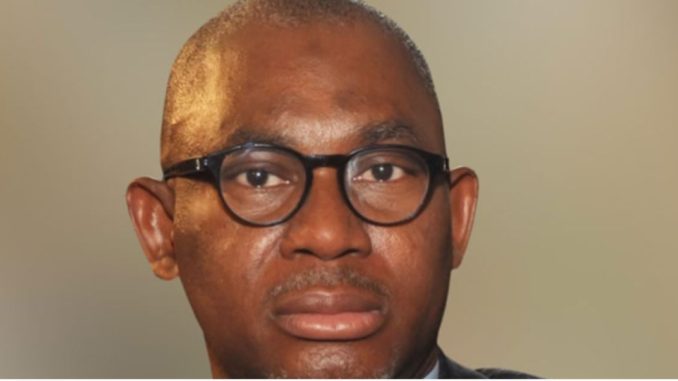
New on the job as Minister of Mines and Steel Development, Olamilekan Adegbite should avoid the slippery, doomed choices of the past on the Ajaokuta Steel Company. His remarks while receiving the Russian ambassador to Nigeria that the government was still bent on running the comatose steel complex and seeking “collaboration” were suggestive of the confusion and policy inconsistency that have rendered the multi-billion-dollar project idle and made the country the butt of derision in the global community. The only viable option in realising the dream of industrial take-off via a competitive domestic industry is immediate sale of the complex to a top rate global operator.
Alarmingly, Adegbite is playing a familiar tune; the government, he says, “has intensified efforts” to ensure that Ajaokuta starts production before the end of this year and wants the Russian government’s assistance. At face value, looking towards the East European country for help sounds good since a Russian company built the complex following a bilateral pact with the defunct Soviet Union. But it was the Russian envoy, Alexey Shebarshir, that deftly turned the discussion towards the sensible path of private capital. He reminded the Nigerian government of the need to protect private investors interested in turning around the company for optimal production. A Russian firm is said to have lately offered to complete the project.
The Minister’s two immediate predecessors, Kayode Fayemi and Abubakar Bwari, had been explicitly committed to keeping government away from running Ajaokuta in favour of concessions to private operators once outstanding legal entanglements were cleared. Indeed, Fayemi, as senior minister, had declared emphatically in March 2018, that the government would not spend an additional penny to revive the plant. Instead, it was bent on a concession agreement to “a capable company with a good history of competence and financial buoyancy” after a technical audit. This is the right approach to break the Ajaokuta jinx. Government is not good at running industrial concerns like the private sector.
The rationale was that, after spending $8 billion on it since 1979 and being “98 per cent completed” with no steel produced, it was better to allow a competent private investor to run it after over three decades of idleness. To this end, Fayemi and President Muhammadu Buhari stared down a determined, self-indulgent attempt by the eighth National Assembly, including a rushed amendment to the privatisation law, to force the government to spend N2 billion to “complete” the complex and drop the concession plan.
Nigeria needs a viable steel industry. Steel is the bulwark of industrialisation, generates employment, export and tax revenues and innovation. Ajaokuta, Africa’s largest integrated steel complex, was expected to create 500,000 jobs down sector-wide and form the backbone of the manufacturing sector. Malaysia, for instance, exports 75 per cent of its steel products to other countries. Egypt is Africa’s top producer, followed by Libya, Morocco and South Africa. Egypt has 25 steel works located around the country, providing employment, taxes and export revenues.
For every two jobs in the steel sector, says the World Steel Association, 13 more are supported throughout the supply chain. The ability to make steel is also seen as a crucial component of a nation’s defence capability, not to mention its role for strategically important industries such as transport and oil and gas. But the country’s misfortune in mismanaging the steel dream leads to a steel products import bill of $4.5 billion yearly, according to Bwari, while the Galvanised Iron and Steel Manufacturers Association of Nigeria says the treasury loses another N52 billion via illegal import of steel products into the country annually. Buhari’s concession route is misplaced, an excuse for continued state control. Ajaokuta has undergone several fraud-induced concessions that left the country worse off. One to Solgas was terminated after only a year; another to Global Infrastructure ended in an acrimonious legal battle and arbitration that saw the government give up the National Iron Ore Mining Company, Itakpe, to recover Ajaokuta, while another company is laying claim to a subsisting concession.
Globally, steel industry has been in decline for some time because of a variety of factors such as overcapacity in European Union steelmaking and Chinese state-subsidised firms flooding the global market with cheap product. A report says China’s steel production alone saturates the global steel market. Again, the industry has become more complex and competitive, with mergers and acquisitions creating mega producers; the world’s top 10 firms account for 25 per cent of total global production, adds WSA. It is foolhardy, therefore, to hand over Ajaokuta to a bit player or shadowy firm without hefty corporate muscle.
As things stand, the wise course is to cut our losses and sell the plant outright. The government should not retain more than a minority stake. Success will be achieved through carefully targeted sale with conditions that will narrow the field of bidders to only the world’s most successful steel sector multinationals with name-recognition, technical and financial capability and access to global logistics chains and consumer markets. To make a difference and benefit from the African market that accounts for only one per cent of global steel output, Nigeria should sell Ajaokuta very quickly to raise domestic production from its poor 0.11 per cent of world output, generate jobs, export and manufacturing.
END

Be the first to comment